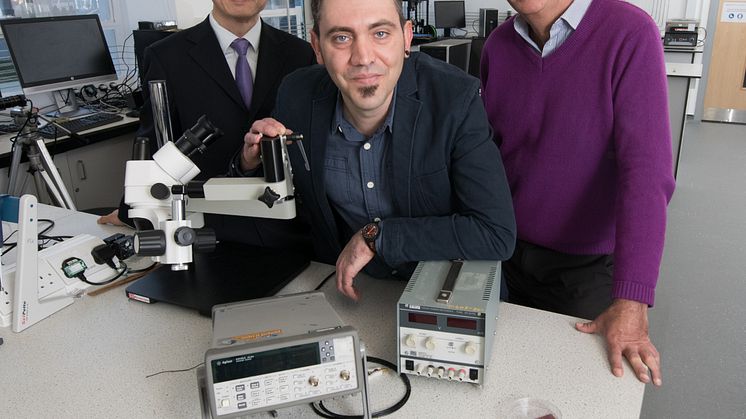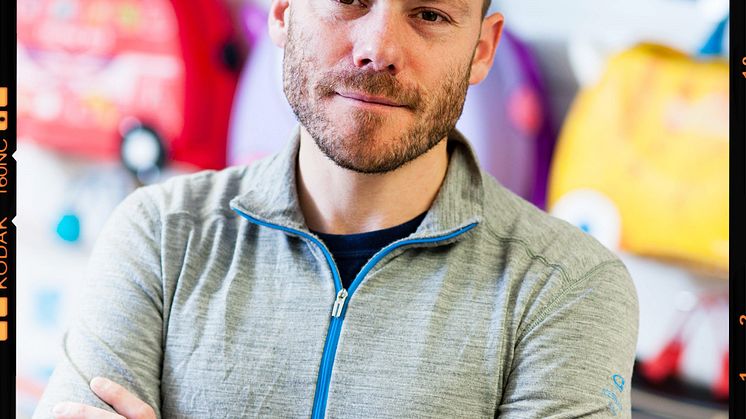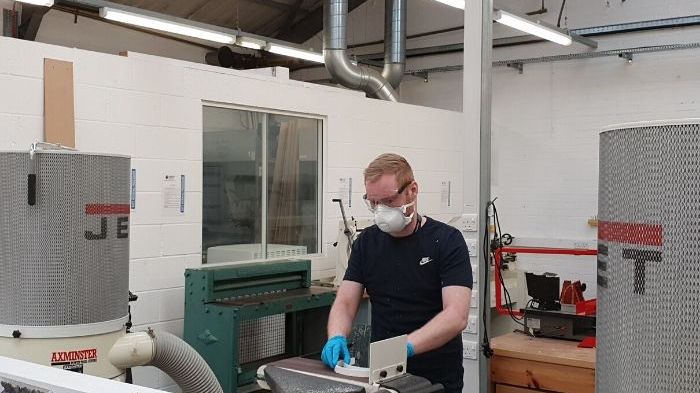Press release -
EXPERT COMMENT: Does design thinking hold the key to business growth during COVID-19
Northumbria University's Dr Stuart English discusses how design thinking could help businesses survive the post-Covid-19 world, in this article, which originally appeared in Startups Magazine.
With the IMF warning that the ‘Great Lockdown’ global recession will be the worst since the Great Depression, organisations are being forced to reset and reinvent faster than ever before. The race is on for entrepreneurs and business owners to craft new plans, develop new products and deliver new solutions in order to survive.
In the entrepreneurial community, it’s encouraging to witness the number of small businesses who are already swiftly reinventing their strategies to stand out in a difficult and complex market and meet some of the challenges they are facing head on. However, as the global situation continues to evolve on a daily basis, the key to ongoing success in a global market which could see some communities needing to isolate for up to a year, will be for startups and established businesses alike to think carefully about their response and move swiftly in-line with the context in which they are operating. As we all know, entrepreneurs are often unsuccessful in their endeavours (some statistics estimate around 90% of startups fail) because they come up with an idea for a service or product that they think will work well without truly understanding their market – afterall, it’s human nature to look for information that confirms an idea will be successful prior to launch and discount any evidence that acts to the contrary.
Over the course of my 34-year career in industry and academia, I have come to the firm conclusion that design thinking is one of the best-placed business mindsets to address these issues as it allows us to reconfigure and reinterpret complex situations. During this time of crisis, business resources mainly remain the same, whereas relationships have changed and this means that established structures fail to function effectively. Design thinking enables us to build new realities out of uncertainty. Afterall, at its very heart is human-centred design and there has never been a more critical time to place the changing needs of customers at the centre of business strategies to innovate, evolve and survive. Here’s why I believe adopting it as a methodology could be one of the smartest business decisions you make this year:
You'll be more empathetic to your customers's needs, which matters now more than ever before
The key to moving out of this crisis in the long term is undoubtedly to understand more about Covid19 from a scientific perspective. But many of the challenges we’re currently facing present human, rather than scientific, problems - from protecting jobs and livelihoods, to helping our front-line services confront and overcome issues surrounding safety and supply chain management.
Design thinking is a mindset that encourages you to alter your focus from a more linear development process (implementing a business-driven, predetermined solution that’s fixed around limited commercial outcomes) and instead grow an in-depth understanding of these human experiences, problems and perspectives. The first stage of any design thinking process (of which there have been many written about over the years) is always to empathise, to observe and to gain a deep understanding of your customers’ thought processes, which is especially important in this odd new world that we find ourselves in. By taking the time to understand the human experiences that are playing out before your very eyes, you can respond more effectively to their demands. By constantly looking to empathise with your customer base, any biases you may have about what solutions could work best in the current climate will be exposed and you’ll be far closer to developing a business strategy that thrives.
You'll be able to innovate quickly and more successfully
By evaluating your customers’ needs, wants, and behaviours, you’ll be armed with the tools you need to fully understand the situation at hand and unearth the problem that you are trying to solve. You’ll be able to build a clear description of the issue that your end product or service is looking to address, maintaining your focus on your customer at all times, rather than any desired commercial outcomes. This, combined with your natural imagination and your ability to think outside of the box, question the norm and re-define existing solutions, should result in the creation of a plethora of potential solutions and ideas as you move through to the innovation stage. With tweaking, fast prototyping and testing, a new business proposition could be market-ready very quickly, saving you valuable time and resources by avoiding false starts.
You'll be free to adapt to a fast-changing environment and realise new opportunities from fragmented parts
All design thinking frameworks and processes have the same goal in mind: to change the way we look at the challenges around us. They are all iterative processes, that recognise the dynamic uncertainty of change, a philosophy that is exceptionally fitting for the unprecedented and unpredictable environment we find ourselves in.
As the global situation evolves, adopting a design thinking mindset will help you to reimagine your business in relation to this unique social and economic context. Entrepreneurial businesses are, in many ways, in an extremely fortunate position in this crisis since they are not constrained by the concrete structures of established organisations. Instead, there’s a unique chance to pivot fast, using design thinking to update offerings and be first-to-market with a product or service that matches needs and expectations in innovative ways during a defining moment in global history.
Dr Stuart English is Associate Professor in Design and the lead academic on Northumbria University’s Design Management MA.
Topics
Categories
Northumbria is a research-rich, business-focused, professional university with a global reputation for academic excellence. Find out more about us at www.northumbria.ac.uk --- Please contact our Media and Communications team at media.communications@northumbria.ac.uk with any media enquiries or interview requests ---











